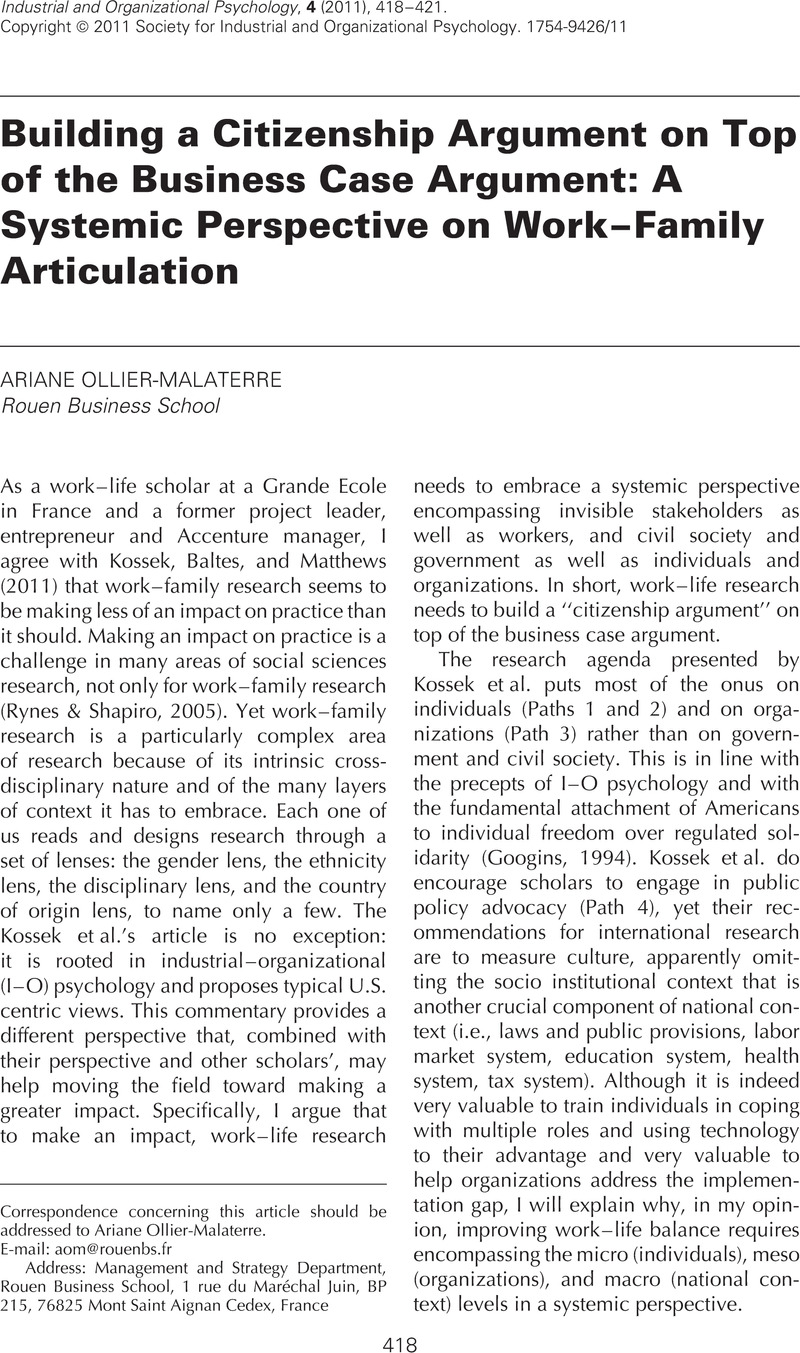Crossref Citations
This article has been cited by the following publications. This list is generated based on data provided by Crossref.
Kossek, Ellen Ernst
Baltes, Boris B.
and
Matthews, Russell A.
2011.
Innovative Ideas on How Work–Family Research Can Have More Impact.
Industrial and Organizational Psychology,
Vol. 4,
Issue. 3,
p.
426.
Kossek, Ellen Ernst
and
Ollier-Malaterre, Ariane
2013.
Expanding the Boundaries of Work-Family Research.
p.
3.
Den Dulk, Laura
Groeneveld, Sandra
Ollier-Malaterre, Ariane
and
Valcour, Monique
2013.
National context in work-life research: A multi-level cross-national analysis of the adoption of workplace work-life arrangements in Europe.
European Management Journal,
Vol. 31,
Issue. 5,
p.
478.



